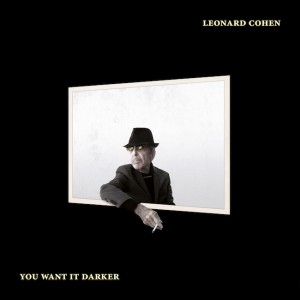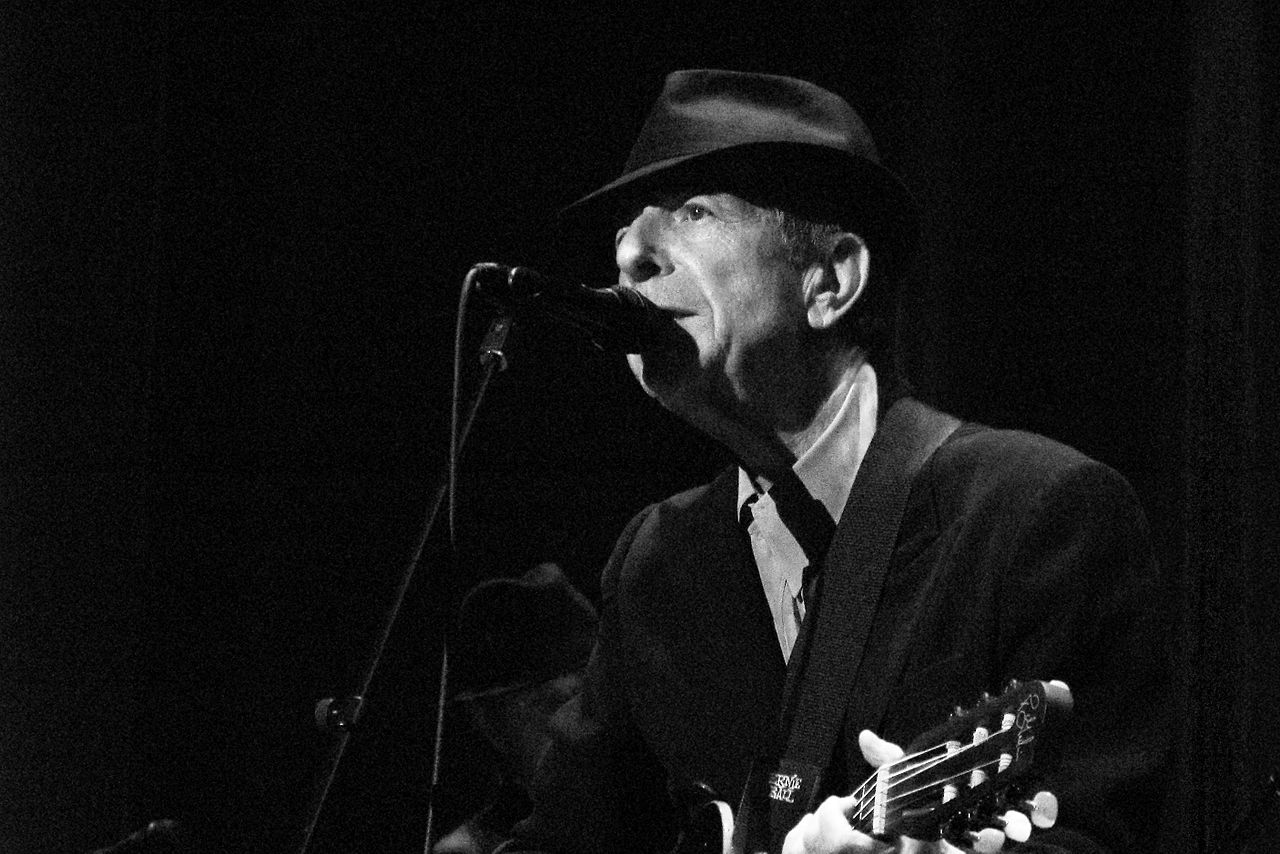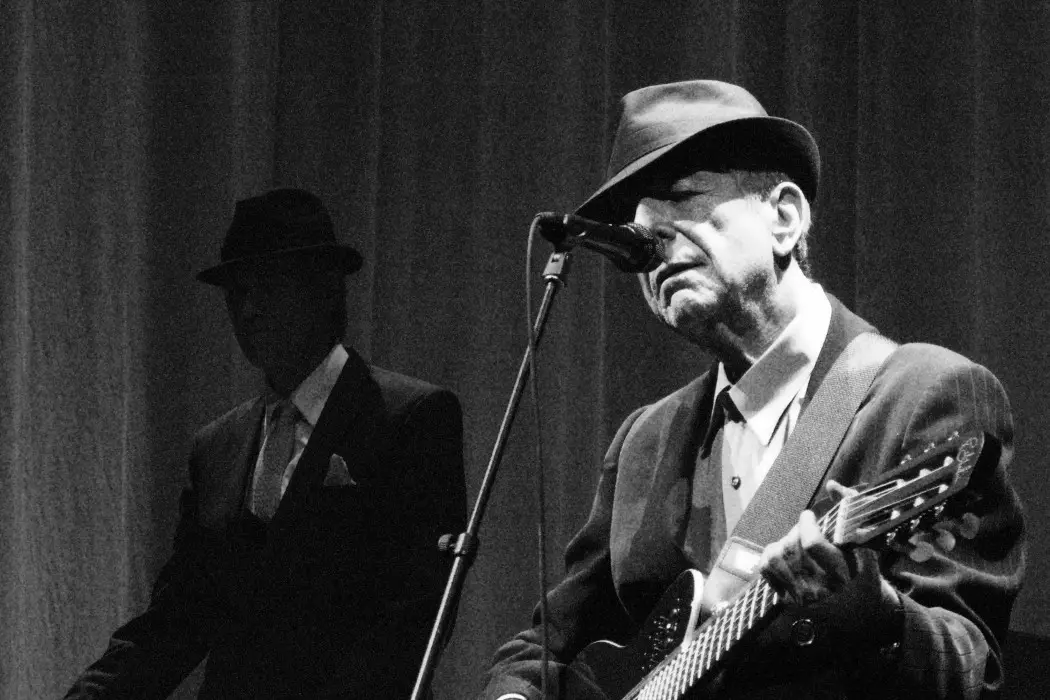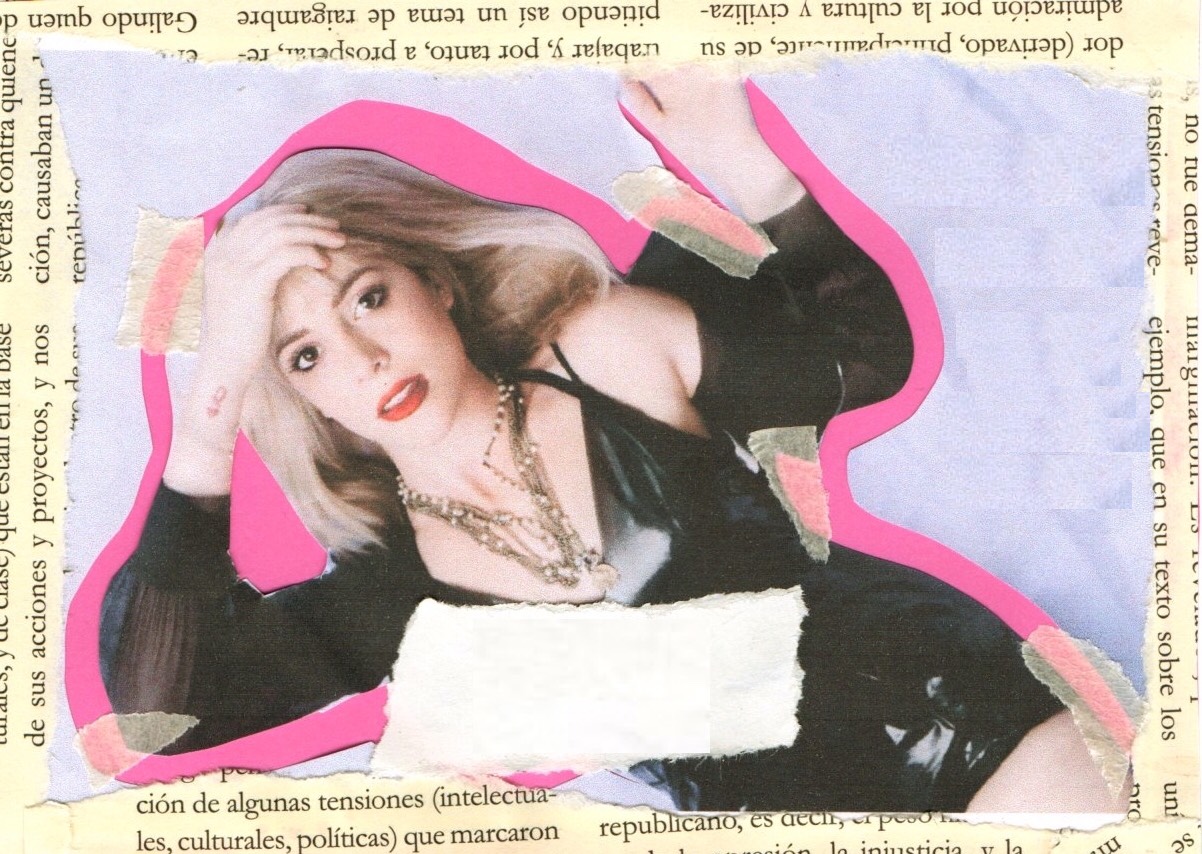Ugh. 2016, right? This has been quite a year for awful things. I’ve said goodbye not only to the amazing Leonard Cohen, who died at age 82 Thursday night in Los Angeles, but also to David Bowie, George Martin, and Prince. There was also that crazy election, which, no matter what your politics are, probably stressed you out and upset you horribly at one point or another. (Also, somewhere in this year I had a breakup, but I don’t need to spend this obit whining…) Cohen’s death hit like a gut punch. Not another awful thing.
Cohen released a final album in October, the fittingly named You Want It Darker (10/21/2016 via Sony Music). I confess to not having gotten a chance to listen to it until after its creator’s passing. So Cohen’s elegiac baritone, coming up to me from the depths of a densely recorded cloud, sounds like that of a ghost. In a long New Yorker article by David Remnick published a few weeks ago, Cohen discussed how his album was about death, suspecting that he’d probably not be around for much longer.

His final album is fantastic, just as Bowie’s album about oncoming death was. But for me to point out that it’s about death, that Cohen sounds like a ghost singing from beyond the grave, is redundant. Leonard Cohen always sang like a ghost, and his songs were always about death. They were also about sex, and God. Usually, you couldn’t tell the difference between the three. Like I previously wrote about Prince, Cohen was an artist who treated sexual lust and religious devotion as almost interchangeable.
But whereas Prince found ecstasy in his desire, Leonard Cohen delved into despair, unmet desire, and the anhedonia of desire fulfilled. His music is dark, sometimes comically so. “I fell into an avalanche/it covered up my soul,” he sings at the opening of one of my favorites. His music is surrounded by very high walls, which do not let the sun in, leaving the listener to stew in the most solemn emotions of humanity.
But of course, there’s that line from “Anthem“:
There’s a crack in everything
That’s how the light gets in
Because Leonard Cohen’s doom and gloom was never meant to bring you down. His songs examined sadness and depression not as an excuse to wallow, but as a deep dive into the beauty that can only be found in misery, the light that only gets in because of the cracks.
Cohen’s music is the soundtrack for a dark year. It’s music that does not avoid, belittle, or gloss over pain. It meets it head on, and finds what is most powerful about it. It greets anguish like an invited guest, there for insightful conversation and fine wine. He does not shy away from that which is painful. He finds that which is wonderful in the worst moments.

A few weeks ago, before the prize was announced, my dad presciently told me he thought Bob Dylan deserved to win the Nobel Prize. But he also insisted that Leonard Cohen deserved it more. And he’s right. Before Cohen ever began singing, he was a novelist and a poet, joining the rock and roll world in his late thirties, older than any of his contemporaries. His lyrics are fiercely and wonderfully poetic, couched in an often abstract, wry verse laden with allegory. His words stand with an almost biblical authority. “But he himself was broken/long before the sky would open/forsaken, almost human/he sank beneath your wisdom like a stone.”
It would be impossible to write about Cohen without mentioning his most famous hit, “Hallelujah,” which is probably better known for its cover versions, including those by Jeff Buckley, KD Lang, Rufus Wainwright, and Justin Timberlake. True to his roots as a poet, his best songs lend themselves to interpretations that go far beyond the stripped down acoustic guitar of his early work or the plush lounge-sound of his later. The song is among his best in its melding of religious imagery with a deep sexuality and anguish. And it’s a song that goes beyond the lyrics everyone who has ever played piano or guitar has seemingly memorized. Cohen wrote dozens of verses to the song, many of which don’t show up in the cover versions or his own much-less-listened-to recording from 1984.
I keep thinking of the last verse of that version, which is omitted in most of the others:
I did my best, it wasn’t much
I couldn’t feel, so I tried to touch
I’ve told the truth, I didn’t come to fool you
And even though
It all went wrong
I’ll stand before the Lord of Song
With nothing on my tongue but Hallelujah
Leonard Cohen’s songs were often about this feeling, of failure, of wreckage, of incompleteness. But as he heads to stand before the Lord of Song, he goes with a commitment to his truth, to singing with a direct and emotional rawness. He is surrounded by the darkness, but that’s where he finds greatness.
Watch: “Hallelujah” – Leonard Cohen
[youtube=https://youtu.be/ccGz-li_rgM?t=0s]









